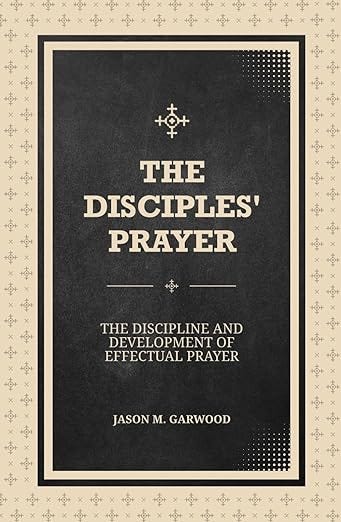The Restoration of the Tree of Life, Part 1, on the Virtue of Love, The Tangible Disposition of Good Towards Neighbor
My hearty gratitude for the readership these last 30 days.
It gives me great joy to know that many of you appreciate my labors on Substack.
As has been my practice for many Lents, I will hit the social media pause button until Easter morning. Nevertheless, I will keep my Tuesday and Friday editions here to keep the momentum going. I am incredibly excited to begin posting essays on each Fruit of the Spirit. I will start with love in this free edition, but if you wish to read the others, you can subscribe below. I am giving a paid subscription for 40% off not just for the first year, but for every year thereafter. I hope you will take advantage of it and also encourage me in my efforts.
One author said that if modern writing methods were available for the Apostle Paul, he would have written every word of Galatians in bold, capital letters, filled with exclamation marks. Paul is astonished that the Galatians are so easily led astray by a false Gospel. They are unvirtuous and unbecoming as a Christian Church. But Christ did not come for the healthy, but those who are sick. This congregation is sick, vulnerable, and at the precipice: one step from apostasy, one step from destruction, and one step from abandonment of their first love.
Paul says that they are in love with the approval of man. It is safe to say that Paul’s tone is not a happy one. Yet, God is faithful. To the unvirtuous, he will offer virtue. To those who have consumed false fruit, Paul gives a tree of life.
He provides a better way and better mission. In Galatians 1:16, he says that his pleasure is to reveal the Son in him (Gal. 1:16). The first Adam was fruitless, but the new Adam will provide virtue upon virtue. Paul’s theology of fruitfulness reveals the Son in the Church. The opposite of a false Gospel is the revelation of the Son in us, manifesting the fruits of righteousness.
The fruit of the Spirit is Paul’s catalog of virtues.[1] According to the Apostle, the fruit of the Spirit is the Christian’s mission statement. The way to Christlikeness is to live so that these Spirit-birthed virtues become a part of who we are. Paul invites us to eat freely from this tree of life. You can go back for seconds and thirds in this buffet line!
So, let’s consider afresh this familiar list.
All You Need is Love
Paul says, “But the fruit of the Spirit is…”
The apostle’s opening words need to be parsed carefully. We’ve been trained to think of the Spirit as “spiritual.” And if something is spiritual, it is not visible; it’s ghostly. It’s otherworldly. Instead, we should think of “spiritual” as the application of something formed in you by the Holy Spirit. “The life that flows in the tree of human virtue is the Holy Spirit, motivating and giving the power to live up to the virtues listed.”[2]
Paul sees the body as a single unit. When the Word of God cuts, it cuts the entire being. When you think of body in the Bible, think of your entire humanity, not just your flesh. The body is the battleground of good and evil.[3] And the first great battle of our bodies indwelt by the Holy Spirit is the battle of love.
Listing love at the beginning of this list is not accidental. For Paul, love is the beginning of the mission, the frontline where we fight for the other eight virtues. It’s the first and most outstanding because it will endure forever. Paul talks about love as the preeminent virtue in this tree of life. He even writes a chapter dedicated to this theme in I Corinthians 13—“but the greatest of these is love.” He mentions it twice in Galatians (5:6 & 5:13b). Love is a breath-taking summary of every virtue. You can do anything outwardly that looks good, but without love, it’s empty, like clanging symbols.
What’s Love Got To Do With It?
In our culture, there will be plenty of temptations to use love wrongly, to turn a virtue into a vice, or to think we are showing love when we are actually running away from it. If you have read The Screwtape Letters, you will remember a scene in which a son loves his mother. He loves her and prays for her, so both Wormwood and Screwtape attempt to devise ways to prevent the man from loving his mother more in prayer. Wormwood and Screwtape both know that the best way to tear them apart is by making the man annoyed at his mom’s little flaws and try to illuminate those through nitpicking her prayer.[4]
Parents and spouses: one way to fail at love is by excessive nitpicking. Peter says, “And above all things have fervent love for one another, for ‘love will cover a multitude of sins,’” and we add “annoying habits.” We fail to embark on this mission of love by allowing ourselves to be so troubled by people's annoying habits that we fail the test of fruitfulness. The devil is deeply interested in high-jacking love from this list by excessive nitpicking.
Another way he does this is by confusing our definitions. In our culture, love is defined as “Whatever makes me happy.” But the demonstration of love is most valued precisely when it doesn’t benefit or make you happy.
We all crave a trouble-free life and tend to get irritated when our best-laid plans go awry. But remember Paul’s context. He is talking to the Church in Galatia. He is talking about relationships in the body. He is talking about using these gifts to a church struggling to stay pure, to preserve sound doctrine, a church easily deceived by false teachers. If Galatia does not eat from the fruit of love, she has no hope of staying united to her Lord. So, how loving are we with our brothers and sisters? How easily irritated do we become with them simply because they do not act as we expect them to? Or because they do not do things as we think they should or because they sometimes drain us emotionally? Paul says that the life of love is a life that suffers long and is not easily irritated.
So, what do we do when these inconveniences happen? What is the answer? Paul’s answer is the answer that is pervasive in the Scriptures. The answer is you must die. “To love like this is to die. If I am to be like this, something in me must die. My strong craving for a trouble-free life without interruptions must die. My demand that frustrations and interference get out of my way must die. We cannot love the way Paul describes until we die.”(Bryan Chappel) Only by dying do we live a life of love. Hard conversations will happen. Some will decide to go a different way, to a different community, but love cannot be absent from any of these exchanges.
The fruit of the Spirit is love…we are bound by love, imprisoned by love, chosen to love, called to love, emboldened to love, and baptized to love. It’s not just a virtue we attach to our calling--it is our calling.
Love is not a possession of some kind, it is not an abstract idea; it is not only the motivating factor for behavior, but rather love is behavior. In simple terms, love is action, or we may say: “love is ethics.” Or more precisely, “Love is the tangible disposition of good towards neighbor.” It is concrete and visible; it is covenantal and relational. In fact, it is so tangible for Paul that he says in I Corinthians 2 that “(he) decided to know nothing among you except Jesus Christ and him crucified.”11 Love, for St. Paul, is demonstrated in the suffering of Christ for us. He gave himself for us while we were yet sinners. “To love is to act; anything short of action is not love at all.” A husband can say he loves his wife 100 times a day, but if his disposition towards her is good, there is no fruit to his love. They become clanging cymbals.
Our mission is to reveal Jesus by bearing the first fruit of the Spirit: love.
When we love, we are entering the territory of grace; we are entering into holy ground. We are keeping others from being deceived by false teachers. When we say, “I love you” to someone, we say, “I am connected to you in a mission of self-giving.” Love is the habit of grace. It’s the grace of habits. It’s the godly virtue we display as the ones who received grace abundantly from a God willing to sacrifice his Son for us. God’s gift of love was a Son who shed his blood for us. Paul writes after this list, “Those who belong to Christ Jesus have crucified the flesh with its passions and desires.”
Love in Action
Indeed, as we think about love, we must undo ourselves from all sorts of falsified versions of love we have learned to embrace in our culture. For Paul, the fruit of the Spirit is love because the Father is love. The Son is love. The Spirit is love.
So, to form the right view of love, we need to practice loving; to have a tangible disposition to the good of others.
I once knew a young lady who cared for her grandmother when her grandmother had Alzheimer’s. She watched over her grandmother three 8-hour days every week until her grandmother died. Love.
I know a covenant child who loves his little brother. He ties his shoes in the morning and gives him hugs and kisses and prays for him before the start of the school day. Love.
I know a husband who sees his tired wife after work and helps her prepare the kids for bed. Love.
I know a woman who volunteers at nursing homes weekly to share the Gospel and keep them company. Love.
I know a mom who wakes up early to pray for her children every morning. Love.
I know a dad who reads Bible stories before bed and makes worship a priority for his family every Sunday. Love.
I know a single lady who is always eager to serve God’s people and not live in isolation. Love.
I know people who will do deeds of mercy without anyone ever hearing about them. Love.
I know families who open their homes to guests as often as possible. Love.
I know a mature woman who regularly uses her wisdom to share truths with young married women. Love.
I know a church that has shown so much kindness to her pastor. Love.
I know people who would do anything to see others come to Christ. Love.
You can’t limit love. There are thousands of examples of this in the church.
Love reveals the Son! Love eats from the tree of life. Love is the tangible disposition of good towards neighbor.
For the fruit of the Spirit is love.
[1] Henry Mitchell uses this language.
[2] Ibid.
[3] Ibid.
[4] http://cslewis.umwblogs.org/2014/04/16/love-as-a-theme-in-screwtape-letters/
Notations
I have endorsed a few books in the last couple of months, and usually forget to bring them to your attention. Let me unforget and remind you of this new work from my friend Dr. Jason Garwood on the Lord’s Prayer.
Nuntium
I will be in Georgia this coming week and next for different reasons (politics and pleasure). Then, I will be headed back to Moscow to meet with various CREC ministers during presbytery, speak at the annual Christ Church Missions Conference, and turn right back around and fly back to be with my beloved friends at Providence on the Lord’s Day. Please pray for stamina.
MARCH 28th & 29th IN MOSCOW, IDAHO
The Christian West is in the midst of an identity crisis. We fondly recall the blessings of our forefathers’ faithfulness, but we don’t understand that our own unfaithfulness is why the edges of our social fabric are all tattered. As if that wasn’t bad enough, open idolatry and blasphemy are given prime real estate in front of the local department store.
Sincere Christians might be tempted to retreat in such a time. Instead, we should remember Jesus’ words about the Spirit blowing where He pleases. If we peer over our own borders we can see places where the work of the Spirit is at least at CAT5 levels. One such place is Brazil. We want to share a vision for why American Christians should be actively praying for and supporting the work of reformation and revival down south.
Join us for a weekend of encouragement, vision, and fellowship as we labor to see every nation, tribe, and tongue confessing the Lordship of Jesus Christ over all things.








